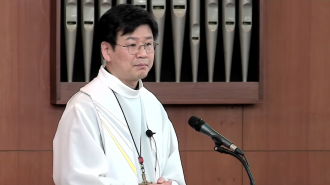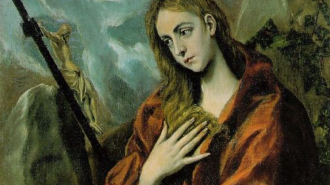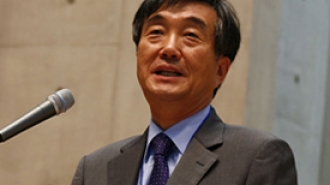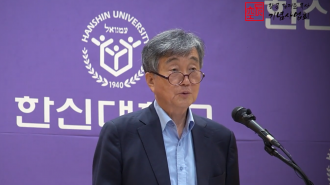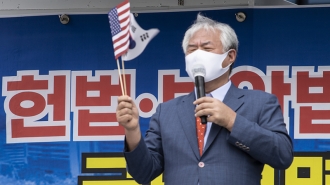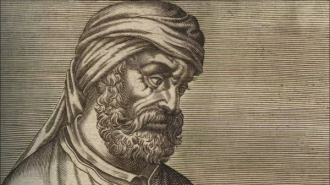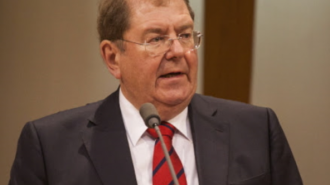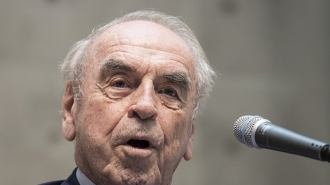호주연합교회 총회장 알리스터 매크레이 설교
본문: 고린도전서 12:12~20
형제가 연합하여 동거함이 어찌 그리 아름다운지요! 이것은 에큐메니칼 운동의 비전입니다. 그리고 그것은 그리스도의 몸인 기독교 교회의 다양한 지체들간의 깊은 화합을 위해 함께 기도하고 일하는 것입니다.
한국에 있는 이 짧은 기간 동안 저의 개인적인 목표들 중 하나는 한국에 왜 이렇게 많은 장로교교단들이 있는가를 밝히는 것입니다. 저의 가족은 순수 스코틀랜드 장로교 출신으로 저는 스코틀랜드가 교리의 문제나, 성경의 해석, 또는 교회조직의 일로 교회를 분열시키는 데 세계에서 최고였다고 오해하고 있었습니다.
그러나 고린도 교회에 보낸 바울 서신의 구절은 두 가지 면을 다 중요하게 생각합니다. 바울이 몸을 교회의 상징으로서 사용할 때 그는 교회의 합법적인 다양성뿐만 아니라 교회의 일치를 위한 예수님의 부르심도 함께 말하고 있습니다. 만일 이 두 가지가 함께 다루어지지 않는다면 그 때는 수많은 왜곡이 일어나서 교회의 선교가 위태롭게 될 것입니다.
먼저, 교회에는 합법적인 다양성이 있습니다. 한 몸이지만 많은 지체들이 있습니다. 이따금 우리는 매우 화합했던 초대 교회를 생각하는 경향이 있습니다. 사도행전 2장의 유명한 구절을 기억하십니까? 거기에는 믿는 사람들이 친교와 음식, 선행을 나누고 – 심지어 서로서로의 소유까지 나누는 매우 조화로운 그룹의 모습을 그리고 있습니다.
그것은 한 장면입니다. 그러나 신약성서에는 수많은 다른 모습들이 있습니다. 거기에는, 초대교회 초창기의 많은 다양성을 묘사하고 있습니다. 신학의 다양성, 교회 조직의 다양성. 그리고 심지어 신약 성서의 초기 문서인 바울 서신의 어떤 부분은 이 다양성이 심각한 분열로 이어졌습니다. 새로운 기독교인의 신앙 공동체와 유대주의자들 사이의 관계성과 같은 이슈들, 그리고 이방 기독교인들이 먼저 할례를 통해 유대인이 되어야 하는가에 대한 큰 논쟁이 있었습니다. 성찬식과 세례 방법에 따른 분열들도 있었습니다. 예수와 하나님의 관계에 대해 다른 견해들도 있었습니다.
이런 것을 보면 우리는 다양성이 불가피한 것이고 대부분의 경우 바람직한 결론에 이르렀다고 볼 수 있습니다. 현대 교회 역시 다양성의 한계에 대한 흥미로운 논쟁들이 있습니다. 아무거나 믿고 어떤 일이든 하면 되는 것입니까? 아니요, 그렇지는 않습니다. 다양성에는 한계가 있고 중요한 것은 그 한계를 어디까지 두어야 하느냐입니다.
그러나 이것은 확실합니다. 만일 우리가 교회의 다양성을 강조하고 하나됨을 위한 예수님의 부르심을 등한시한다면 그 때는 다양성이 쉽게 분열이 되고 우리의 화목하게 하는 구원자이신 예수님을 슬프게 할 것입니다. 또 만일 우리가 그렇게 했다면 우리는 우리의 죄를 회개하고 돌이키는 노력을 해야 합니다. 왜냐하면 우리는 더 이상 한 몸으로서 작용하지 않기 때문입니다. – 우리는 예수 그리스도이신 몸의 머리에 붙어있는 것이 아닙니다.
몸의 정의는 각기 다른 운동을 하지만 서로 보완하는 기능을 하는 부분들의 연합체입니다. 한 부분이 아프면 모두가 아픕니다. 하나가 영광을 받으면 몸 전체가 영광을 받는 것입니다. 좀 가슴 아픈 예를 들겠습니다. 최근에 한국 축구팀이 호주팀에게 졌을 때 신문에서는 한국선수가 호주선수에게 졌다고 말하지 않고 한국팀이 호주팀에게 졌다고 말했습니다.
바울은 몸의 하나됨, 교회의 하나됨을 생각하게 할 때 이 가르침을 강조합니다. 왜냐하면 이것은 오직 하나의 머리이신 예수 그리스도가 있기 때문에 필수적인 것입니다.
복음서에는 예수님이 분열을 싫어하신 이야기들로 가득 차 있습니다. 그는 공동체 안에서 또 그의 제자들 중에서 분열을 원하지 않으셨습니다. 그는 하나님과 사람들 사이에, 그리고 사람과 사람들 사이에 놓여있었던 종교 시스템이라는 장벽을 깨뜨리셨습니다.
예수님은 모든 인간을 하나님 앞에 동등한 존재로 이해했습니다. 우리는 하나님을 향한 우리 공동의 필요로 모두 하나가 되었습니다. 그리고 우리는 그의 거룩한 사랑과 자비의 대상으로 모두 하나가 되었습니다. 예수님은 하나가 되지 않는 사람들에게는 혹독한 비판을 가하셨습니다. 그의 제자들이 누가 오는 나라에서 가장 높은 사람인가에 대해 논쟁할 때 예수님이 그의 제자들에게 진노하셨던 것을 기억하십시오. 주의 성령으로 바울은 기록했습니다. ‘유대인이나 헬라인이나 종이나 자유자나 남자나 여자나 구분이 없이 우리는 다 그리스도 안에서 하나이니라.(갈3:26-28)’
사도 바울이 예수님의 사역을 화해의 직분자로 요약한 것은 마땅합니다. ‘하나님께서 그리스도 안에 계시사 세상을 자기와 화목하게 하시고 그들의 죄를 그들에게 돌리지 아니하시고 …또 화목하게 하는 직분을 우리에게 주셨으니 (고린도후서 5:16-18)
예수님은 깨어진 하나님과 인간 사이의 다리가 되셨고 분명히 기독교 교회의 변화들은 이런 분열을 넘어서기를 촉구하십니다.
기독교 교회들 중에서 합법적인 다양성이 있다는 것을 우리가 보았는데, 누가 모든 사람들이 똑같은 방법으로 생각하고 말하고 행동하는 교회에 속하기를 원하겠습니까? 개인적으로, 교회에서 저의 최고의 경험은 문화도 다르고, 언어도 다르고, 신학적 강조점도 다른 기독교인들이 서로를 묶기에 충분히 강한 하나님의 사랑으로 한 몸이 되어 예배했던 모임이었습니다. 이것은 엄청난 기적입니다. 하나님께서 찬양 받으십니다! 그리고 저는 우리가 우리의 다름을 넘어 협력관계를 만들고 예배 뿐만 아니라 선교와 하나님의 세계를 섬기는 일에 동역하기를 바랍니다.
교회 역사가들은 현대 에큐메니칼 운동이 선교 현장에서 시작되었다고 말합니다. 장로교, 침례교, 성공회, 카톨릭 선교사들은 한국에 와서야 비로소 자신들의 정체성을 발견하였습니다. 예를 들어, 그리스도의 사랑을 나누자는 공통분모의 관점에서 볼 때 오랜 분열과 적대감은 선교지의 수많은 사람들의 필요 앞에서는 중요하지 않는 것이었습니다.
만일 우리가 성육신에 대해 심각하게 다룬다면, 아마 교회는 각각 자신의 모양으로 달라질 것이고 각기 다른 컨텍스트 안에서 표현할 것입니다. 선교사들에 의해 시작된 교회들의 갈등들 중의 하나는 이 특별한 컨텍스트 안에서 그들이 서로 더 권위 있는 기독교 공동체처럼 보이려고 한 것이었습니다. 아무래도 선교사들은 복음과 함께 이 새로운 컨텍스트에 어울릴 수도 있고 어울리지않을 수도 있는 그들만의 문화적 전제를 가지고 왔습니다. 물론 우리 나라(호주)의 원주민들도 이것 때문에 지금도 갈등 중에 있습니다. 그들은 선교사들이 가지고 온 어떤 문화를 거절하면서 원주민 토양 안의 뿌리에서 예수의 복음의 방법을 찾으려고 노력하고 있습니다.
네, 그렇습니다. 다양성, 분명히 하나님은 다양성을 사랑하십니다.! 그러나 교회 안의 다양성이 분열로 변할 때 그것은 심각한 문제입니다. 왜냐하면 그것은 우리의 핵심 복음을 거부하기 때문입니다. 우리가 우리의 입술로 말한 것이 다 우리의 행동과 일치하지는 않습니다. 한번은 어떤 사람이 이렇게 썼습니다. ‘화해를 전하는 분리된 교회는 발모제를 팔려고 하는 대머리와 같다’
신약성서에서 하나됨에 관하여 말할 때는 관료적인 화합을 말하는 것이 아닙니다. 유기체적 화합을 말하는 것입니다. 그렇기 때문에 우리는 계약이 아니라 교회의 언약이라는 용어를 사용하는 것입니다. 교회는 그리스도의 몸입니다! 몸보다 더 유기적인 – 더 아름다운 – 것은 없습니다. 우리는 동일한 DNA 를 가지고 있고, 우리 혈관을 통해 흐르고, 산소를 공급하고, 배설물을 처리하는 동일한 예수의 피는 모두 바로 한 분 하나님의 심장으로부터 솟구쳐 나온 것입니다.
이런 공동체에서 우리를 연합하게 하는 것은 당연히 세례의 물로 상징됩니다. 인종이나 성별, 도덕성이 우리를 갈라놓은 곳에, 예수님은 새로운 공동체로 우리를 불러서, 물이 되어 그런 분열을 무력화 시킵니다.
12장에서 다양성과 그리스도의 몸의 하나됨에 관한 그의 가르침 이후가 재미있습니다. 바로 다음 장에서 사도 바울은 다양성과 일치의 기초를 제공합니다.
기독교 공동체는 매우 가치있는 은사들, 말의 큰 능력, 깊은 지식과 믿음 등 최상의 은사를 가진 사람이라고 하더라도 사랑이 없으면 이 모든 것이 아무것도 아니라고 기록합니다. 만일 내가 모든 것을 다 버린다 해도 사랑이 없으면, 그것은 무익한 일입니다.
이것이 형제, 자매들의 시험입니다. 우리에게는 다양한 교회들이 있습니다. 이 시험은 우리가 서로를 그리스도의 다양한 몸을 이루는 합법적이고 가치있는 지체들로 인식하는지 여부를 테스트하는 것입니다. 이것은 우리가 모든 것에 대해 서로 동의해야만 한다는 의미는 아닙니다. 심지어 우리가 속해있는 교회 내부에서 조차 여러 가지 논쟁은 일어납니다.
우리는 서로를 그리스도의 몸의 지체들로 서로 인식하고 있습니까? 그리고 서로를 인식하면서, 서로 사랑합니까? 그것은, 결과적으로, 그리스도를 믿는 자들에게 주어진 시험입니다. 교회의 머리되신 분을 위해서, 우리가 서로 사랑하고 홀로 모든 사람을 하나님의 한 가족으로 이끄시는 능력을 가진 분의 효과적인 증인이 됩시다. 모든 찬양과 영광을 하나님께 돌립니다. 지금부터 영원히, 아멘.
(원문)
“One Church in Christ”
1 Cor 12: 12-20
How good it is when brothers and sisters dwell in unity! This is the sustaining vision of the ecumenical movement. To work and pray for deeper unity between various parts of the Christian church, the body of Christ.
One of my personal goals during this short time in Korea is to discover why there are so many different Presbyterian Churches in this country. My family comes from pure Scottish Presbyterian roots and I mistakenly thought the Scots were the best in the world at dividing the church over some issue of doctrine, interpretation of scripture or church organization!
Our passage from St Paul’s letter to the Corinthians is important at two levels. When he uses the body as a metaphor for the church he affirms both the legitimate diversity of the church and the call of Christ to unity in the church.
If these two are not held together then all sorts of distortions can occur and the mission of the church will be compromised.
First, there is a legitimate diversity in the church. There is one body but many parts. Sometimes we have a tendency to think about the early church as very united. Do you remember that famous passage in Acts 2? It paints a picture of a very harmonious group of believers sharing fellowship, food and good will - and even sharing their possessions with one another.
That’s one picture. But there are plenty of other pictures in the New Testament that describe, even in the very early years of the Christian church, great diversity. Diversity of theology. Diversity of church organization. And even in some of the earliest writings of the New Testament, in the letters of St Paul, this diversity crossed the line into serious division. Issues like the relationship between the new Christian faith and Judaism. And there were great debates about whether gentile Christians should first become Jews through circumcision. There were divisions about the celebration of Holy Communion and baptismal practices. There were different views about the relationship between Jesus and the Father.
So we might conclude that diversity is inevitable and in many cases healthy. There are interesting debates in the contemporary church about the limits of diversity. Is it OK to believe anything and do anything? No it is not. There are limits and the debates are around where those limits should lie.
But it is clear that if we emphasise the diversity of the church and neglect Christ’s call to unity then diversity can easily become divison and Christ our reconciling Saviour will be grieved. And if that is the case we should repent of our sin and seek to amend our lives because we are no longer operating as a body – we are not in harmony with head of the body who is Jesus Christ.
By definition a body is a unity with parts that exercise different but complementary functions. When one part suffers all suffer. When one is honoured the whole body is honoured. To give a painful example, when the Korean football team recently defeated the Australian team the newspaper did not say the Korean goal scorer defeated Australia. The Korean team defeated the Australian team.
Paul emphasizes this teaching when he reminds us that the unity of the body, of the Church, is essential because there is only one head who is Jesus Christ.
The gospels are full of stories of Jesus breaking down division. He didn’t like it in society and he didn’t like it amongst his followers. He broke down barriers that religious systems had placed between God and people, and people with one another.
He understood all human beings to be equal before God. We are all united in our common need for God; and we are all united because we are all the objects of the divine love and mercy. Jesus reserved his harshest criticism for those who suggested otherwise. Remember when he got angry with his own disciples as they argued about who would be most important in the coming kingdom? In the spirit of his Lord, St Paul wrote: ‘there is no difference between Jew and Greek, male and female, slave and free people, for we are all one in union with Christ Jesus’. (Gal 3: 26-28)
St Paul was right when he summarized Christ’s ministry as a ministry of reconciliation. ‘God was in Christ reconciling the world to himself, not counting our trespasses against us. ..And he has called us into a ministry of reconciliation’. (2 Cor 5: 16-18)
Jesus bridged the separation between God and humanity and surely challenges the Christian church to overcome such divisions.
As we have seen there is a legitimate diversity amongst the Christian churches. Who would want to belong to a Church where everybody had to think and talk and act in the same way? Personally, my best experiences of the church have been in gatherings like this when Christians from different cultures, different languages, different theological emphases, come together to worship the God whose love is strong enough to hold us together in one Body. That is a great miracle, God be praised! And I delight when we are able to build partnerships across our differences and join together not only in worship but in mission and service of God’s world.
Church historians tell us that the modern ecumenical movement came to birth on the mission field. When Presbyterians and Baptists and Anglicans and Catholics found themselves in Korea, for example, the old divisions and hostilities seemed suddenly unimportant in view of the common ground they shared in the love of Christ, and faced with the great ocean of human need.
If we are serious about the incarnation then the church will vary in its forms and expressions in different contexts. One of the struggles of churches started by missionaries is to discover what an authentic Christian community might look like in this particular context. Inevitably missionaries brought with them the gospel and certain cultural assumptions which may or may not be appropriate in the new context. I know in my own country our indigenous people are struggling with that now. They are rejecting some of the cultural packaging which the missionaries brought and they are trying to find ways for the gospel of Jesus to take root in aboriginal soil.
So, yes, diversity. Clearly God loves diversity! But when diversity in the church becomes division it is a serious matter because it denies our central good news. What we say with our lips is not consistent with our actions. As someone once wrote: ‘a divided church preaching reconciliation is like a bald man trying to sell hair restorer!’
When the New Testament talks about unity it is not about bureaucratic arrangements – it’s organic. That is why we talk in terms of covenant in the church, not contract.
The Church is the body of Christ! There’s nothing more organic – more beautiful or messy than a body. We have the same DNA, the same blood of Christ flowing through our veins, carrying the oxygen, processing the waste – all pumped around by the very heart of God.
In this community what unites us is symbolised, not surprisingly, by the water of baptism. Where race or gender or morality would divide us, Christ calls us into a new community, marked by water, where such divisions are rendered void.
It is interesting that after his teaching in Chapter 12 about the diversity and the unity of the body of Christ, in the very next chapter St Paul provides the basis for both diversity and unity.
He writes that despite being supremely gifted in the highly valued gifts of the Christian community, great powers of speech, deep knowledge and faith, if I have no love these all count for nothing. If I sacrifice everything, without love, it is a worthless act.
This is the test brothers and sisters. Our churches are many. The test is whether we recognize each other as legitimate and valued parts of the diverse body of Christ. That doesn’t mean we have to agree with each other about everything. Even within our own churches our debates are vigorous on many things.
Do we recognize each other as members of the body of Christ? And, upon recognising each other, do we love each other.
That, ultimately, is the Christian test. For the sake of him who is the Head of the Church, can we love each other and so bear effective witness to Him who alone has the power to draw all people into the one family of God – to whom be all the praise and the glory, now and for ever. Amen.


